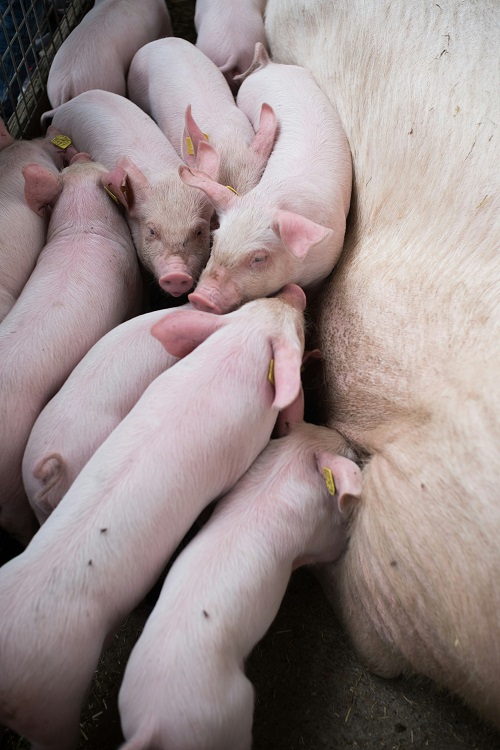Swine Farming Business

Type: Farming (Swine Farming)
Key Product for Sale:
- Live Pigs for Slaughter
- Pork Meat
- Pork By-Products (e.g. skin)
Technology Considerations:
Utilize modern farming technologies for monitoring health, feeding, and waste management.
Implement a farm management system with data analytics for efficient decision-making.
Market for the Products:
Local consumers, restaurants, butchers, and pork processing companies.
Key Inputs into the Business:
- Materials: Pig housing structures, feeding equipment, water troughs, waste management systems.
- Labor: Skilled farm workers, veterinary.
- Equipment: Pigsties, feeding equipment, waste management tools.
Product Preparation Process:
- Research and Planning
- Secure Land and Housing (either rented or owned land)
- Purchase Healthy Piglets or Breeding Stock
- Provide Adequate Nutrition
- Ensure Clean Water Supply
- Maintain Hygiene and Sanitation
- Monitor Health and Wellness
- Market and Sell Swine Products
- Expand Gradually
Quality Considerations:
Ensure pigs are raised in clean and healthy environments.
Implement strict hygiene practices and disease prevention measures.
Cost of Investment:
- Land Acquisition and Housing:
Estimated Cost: KES 800,000 to KES 2,000,000
Land acquisition: KES 500,000 to KES 1,500,000
Housing construction or purchase: KES 300,000 to KES 500,000 - Equipment:
Estimated Cost: KES 500,000 to KES 1,500,000
Feeding equipment, water troughs, waste management systems, etc. - Operational Costs:
Estimated Cost: KES 400,000 to KES 1,000,000 per annum.
Feed costs
Labor costs
Veterinary services
Utilities
Maintenance Market and Sales Expenses:
Estimated Cost: KES 100,000 to KES 300,000
Marketing, branding, advertising
Distribution channels setup Regulatory Compliance and Licensing:
Estimated Cost: KES 100,000 to KES 300,000
License and permit fees
Compliance with regulations
Inspection costs Technology Investments:
Estimated Cost: KES 100,000 to KES 300,000
Farm management system with data analytics
Communication technology (mobile phones, internet connectivity) Initial Livestock Purchase:
Estimated Cost: KES 100,000 to KES 500,000
Acquiring healthy piglets or breeding stock
These estimated costs add up to the overall investment range of KES 2,000,000 to KES 5,000,000, covering land acquisition, housing, equipment, operational costs, regulatory compliance, technology investments, and initial livestock purchase. The actual costs may vary depending on factors such as location, market conditions, and specific requirements of the swine farming operation.
Required Operational Infrastructure:
Well-ventilated pigsties with proper waste management systems.
Feeding and watering systems.
Storage facilities for feed and pork products.
Most Suitable or Viable Location of the Business:
Rural or peri-urban areas with ample space for grazing, waste disposal, and easy access to local markets.
Potential Sources of Investment Capital:
Agricultural loans, grants for livestock farming, and potential partnerships with investors interested in the agricultural sector.
Requirements for Effective Management:
Experienced farm manager with knowledge of swine farming practices.
Collaboration with veterinary professionals for health monitoring.
Role of Mobile Phone and ICT:
Use mobile phones for communication and coordination.
Implement farm management software for data tracking and analysis.
Statutory Regulations and Licenses:
Compliance with agricultural and environmental regulations.
Obtain necessary licenses for livestock farming.
Pricing:
Competitive pricing based on market demand and quality of pork products.
Profitability:
Projected profitability of KES 1,000,000 to KES 500,000 per annum, depending on the scale of production.
Next Steps to Take:
- Finalize land acquisition and construction of pigsties.
- Purchase healthy piglets or breeding stock from reputable sources.
- Develop and implement a comprehensive feeding program.
- Establish marketing channels and partnerships with potential buyers.
- Regularly monitor and adjust production based on market demand.

